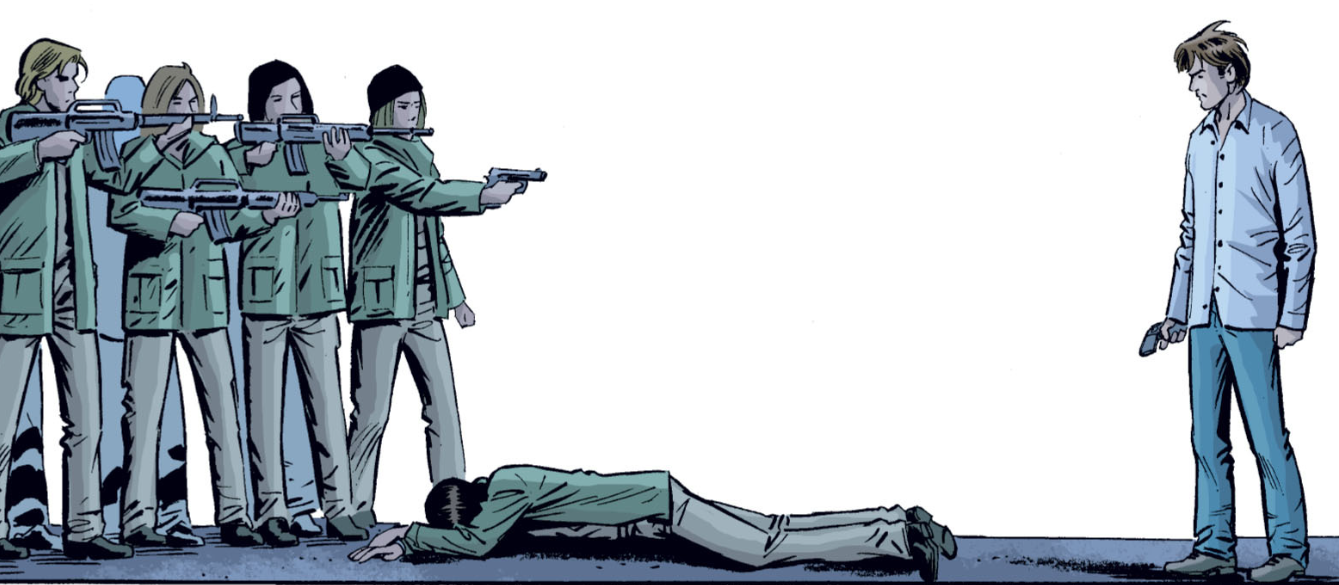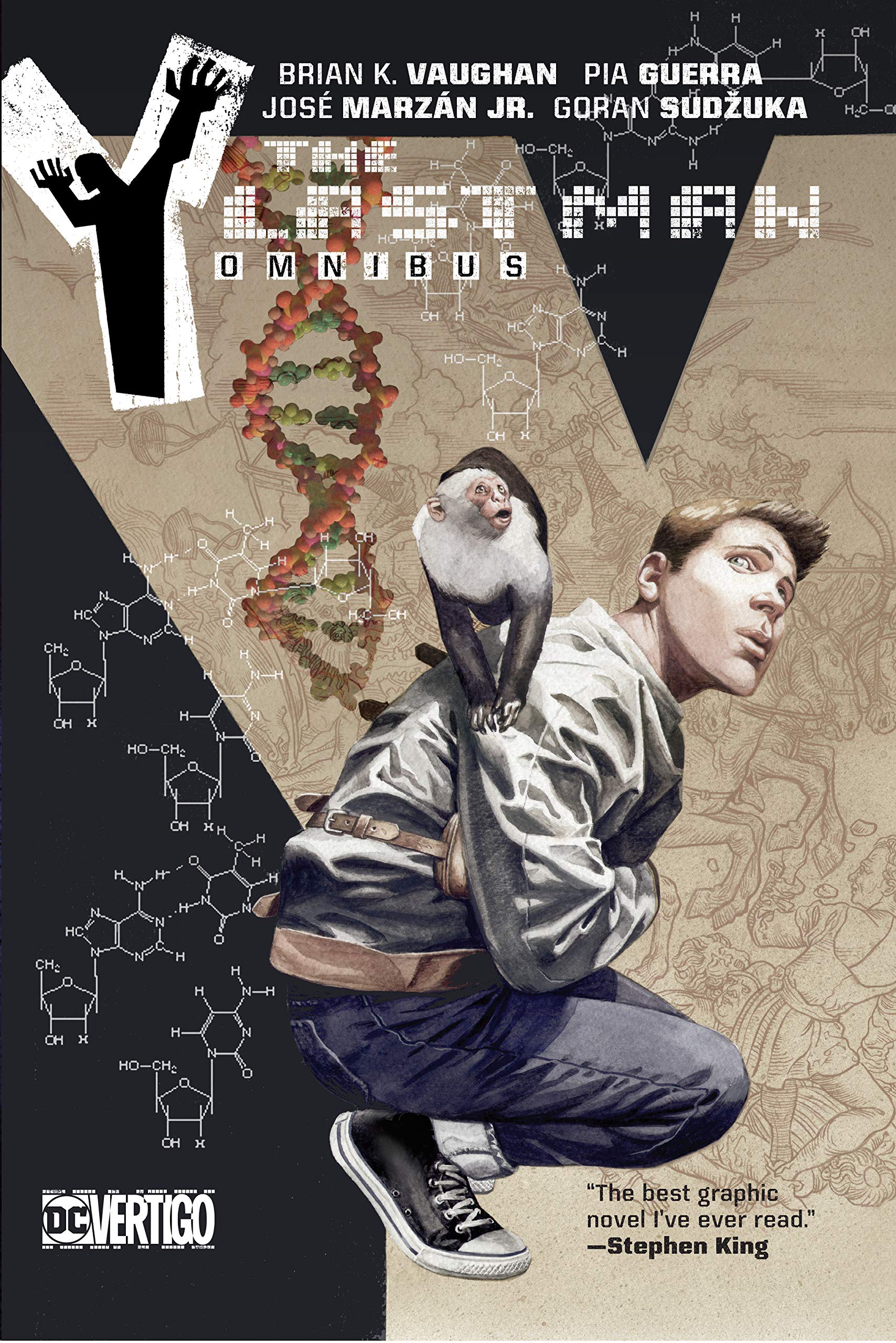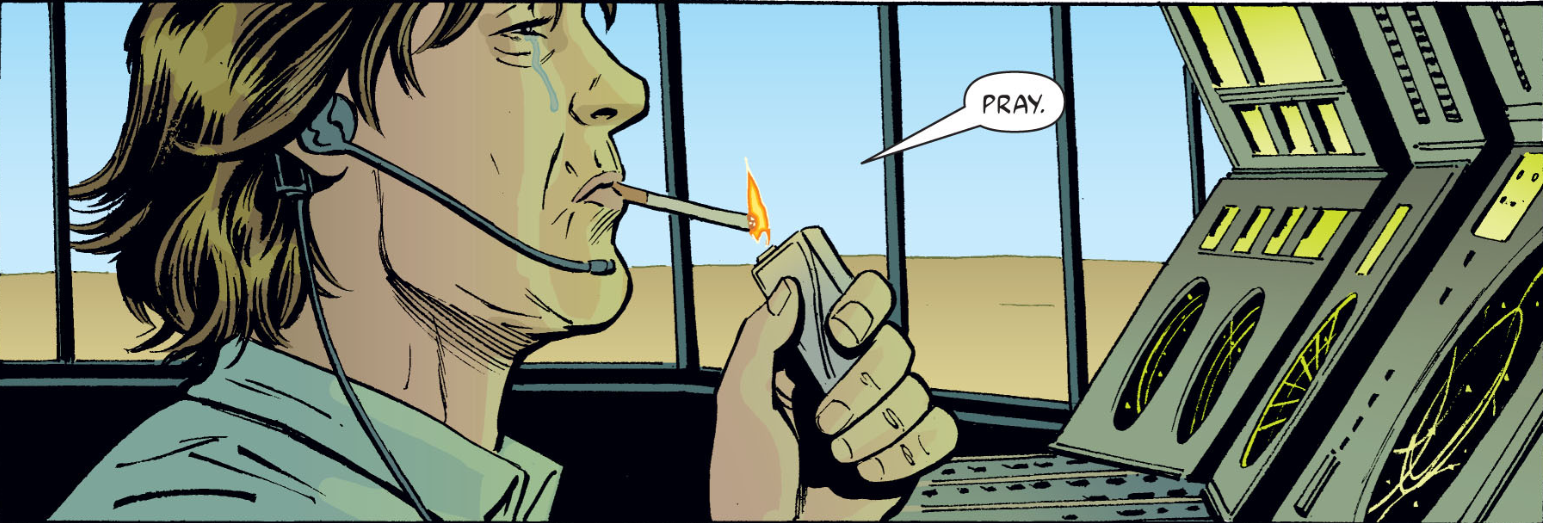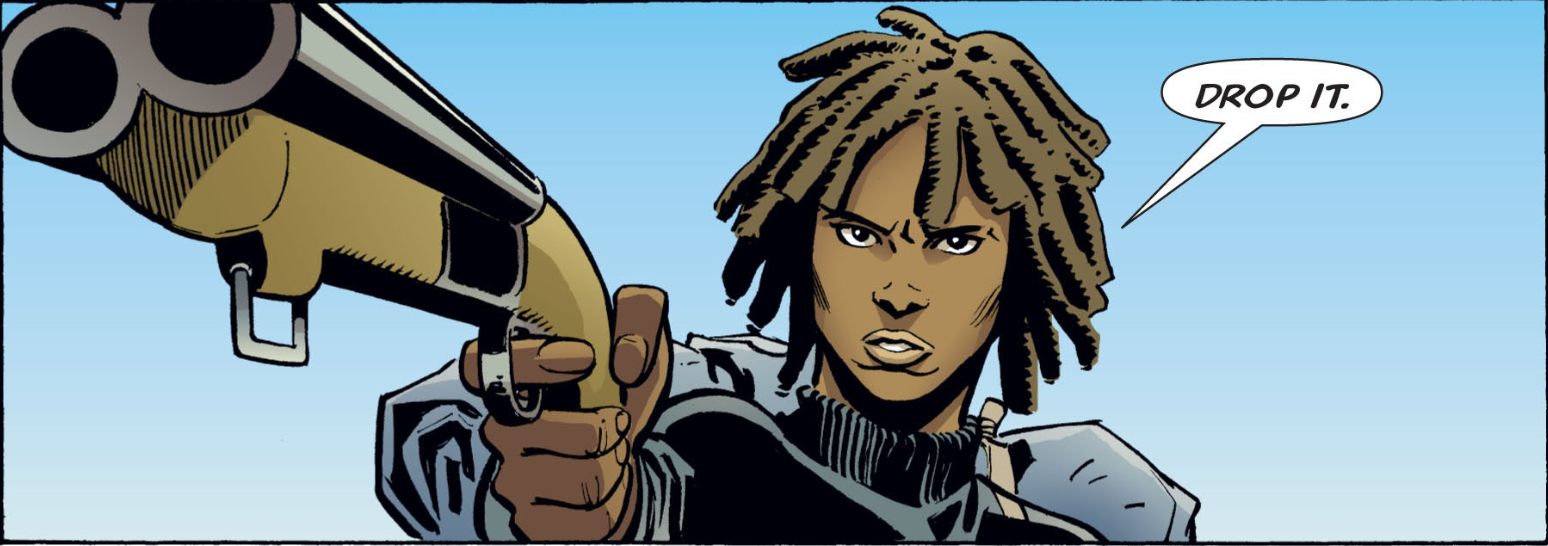

“You and me little buddy…adrift in an ocean of estrogen.”
Until its final few issues, Y: The Last Man struck me as little more than a clever romp. Government collapse, cosmonauts, geneticists, secret agents, spies, clones, dominatrixes, pirates, pop stars turned gangsters, traveling thespians, new age mystics, militias, bloodthirsty cults, conspiracies, double crosses, romances, dream premonitions, jokes, social commentary, cultural commentary. All of it is thrown at the viewer without giving them a chance to breathe. One page is subdued and approaches contemplative territory, the next our protagonists are being held at gunpoint or fleeing a pursuer under a hail of gunfire.
Its globetrotting melodrama is hung upon the pulpiest of all hooks—a mysterious plague that instantly wipes out every mammal with a Y chromosome. Every male on earth, gone in a split-second. Every male except for the effeminate Yorick Brown, an amateur escape artist, and his pet capuchin monkey, Ampersand. Theories abound as to the cause of the “gendercide” but Yorick’s survival and continued immunity to whatever-it-is appears to be more or less miraculous. As reality settles in—billions dead, infrastructural collapse, food shortages, potential extinction—Yorick finds himself brought under the protection of Agent 355, a Culper Ring operative hired by his Congresswoman mother to protect him at all costs. As he goes about his mission—to save the human race, kind of, but really to track down his girlfriend in Australia—he will encounter a host of colorful characters and evade the pursuit of the Israeli army, the self-mutilating Daughters of the Amazon, and a mysterious ninja.

While the premise seems tailor-made for overt feminist grandstanding (or, on the other side of the coin, a male wish fulfillment fantasy)—and there is plenty of it (of both, actually), believe you me—series author Brian K. Vaughan approaches the material with the primary objective of entertaining. He does a very good job of blending liberal diatribes with plot developments and crude humor that muddy the waters and undermine any point scoring, allowing some of his characters to be blatantly ideological without the author appearing pretentious. Indeed, Y: The Last Man is one of those books that provokes the reader to consider a topic without pronouncing a judgment of its own. After reading the series, I’m not sure I’d want to wager anything on guessing the author’s politics—which is a very good thing.

Anyway, the rapid-fire plot is tasty stuff, if lacking nourishment, and I’m not surprised at all that Stephen King is a huge fan of the series. But as it approaches its conclusion, it reveals an emotional depth that it had kept hidden in plain sight for its duration by smothering its drama in ubiquitous pop culture references and low brow humor. In its latter issues, it increasingly focuses on backstories, providing context for our characters’ present struggles. Then, after a surprisingly brutal climax, it rapidly whips across time and space in intoxicating fashion, offering a poignant epilogue that depicts the future of humanity without totally leaving the present.